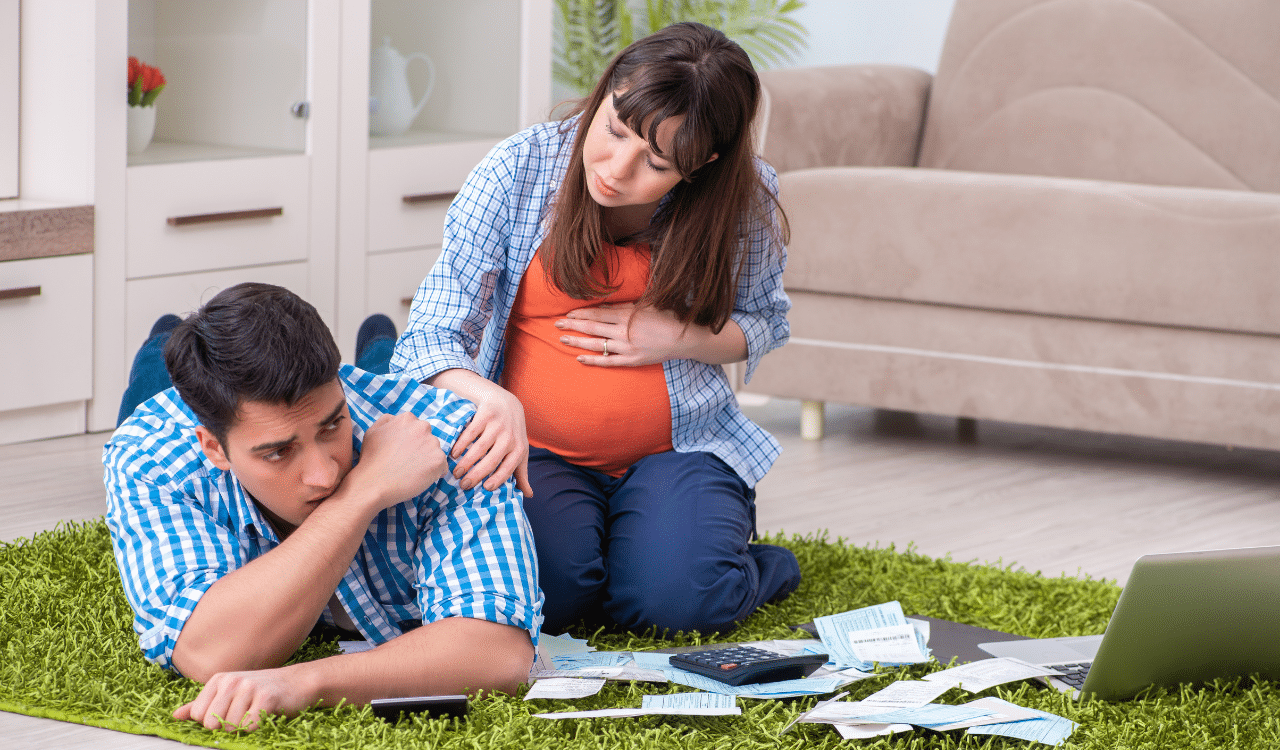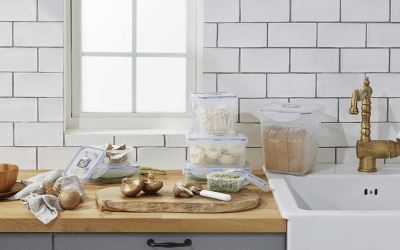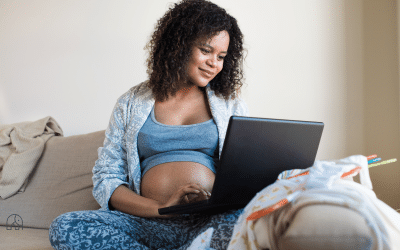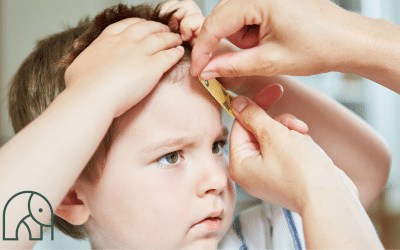The cost of parenthood is perhaps something you don’t worry to much about. That is until you are pregnant of course.
Congratulations! You’re expecting a little one – a joyous occasion filled with excitement and anticipation. But amidst the baby clothes shopping and nursery decorating, it’s crucial to consider the financial impact of a new arrival. Here’s a comprehensive guide tailored for UK parents to navigate the financial aspects of welcoming a baby and the cost of parenthood:
The Cost of Parenthood: Budgeting for the Future

Raising a child is a significant financial commitment. According to the Child Poverty Action Group, the average cost of raising a child in the UK can reach £157,562 over 18 years. However, this shouldn’t deter you! With proper planning and budgeting, you can ensure a secure and comfortable environment for your growing family.
Step 1: Assess Your Current Financial Health
Emergency Fund
A solid financial foundation is key. Ideally, aim for an emergency fund that covers 3-6 months of living expenses. This acts as a safety net for unexpected costs or potential income reduction during parental leave.
Boost Your Savings
Analyse your spending habits. Consider cutting back on non-essential expenses to build your emergency fund and a separate savings pot for baby essentials like furniture, clothes, and feeding equipment.
Explore ISAs (Individual Savings Accounts)
These tax-efficient accounts allow you to save and invest for your child’s future. The annual contribution limit for the 2024/25 tax year is £20,000. This is a great way to accumulate funds for their future education or other needs.
Don’t Forget Your Will
Having a child is a perfect time to create or update your will. This legal document ensures your loved ones, including your child, are taken care of in case of unforeseen circumstances.
Step 2: Understanding Government Support
The UK government offers various financial support programs for new parents:
Maternity/Paternity Leave & Pay
Check eligibility and claim details for Statutory Maternity Pay and Paternity Pay on the HMRC website:
Maternity pay and leave: Check here
Paternity pay and leave: Check here
Sure Start Maternity Grant
First-time parents (excluding Scotland) can receive a one-off payment of £500 to help with newborn essentials. Learn more here.
Child Benefit
This weekly financial support applies to children under 16 (or 20 if in approved education/training). Find out more about eligibility and claim details here.
Step 3: Planning and Budgeting for Your Growing Family
Research Typical Costs
Research average expenses associated with raising a child in the UK. This gives you a realistic idea of ongoing costs, from childcare to food and clothing.
Smart Spending
Prioritise essentials and consider cost-saving strategies like buying used clothes, cloth nappies (washable / reusable nappies), and second-hand furniture. Utilise online marketplaces or connect with other parents who might have baby items they no longer need.
Childcare Planning
Childcare can be a significant expense, especially for full-time work arrangements. Start budgeting early and explore government support options like childcare vouchers or tax credits.
Create a Flexible Budget
Develop a comprehensive budget that factors in anticipated expenses like food, clothing, healthcare, and childcare. Remember, your baby’s needs will evolve over time, so be prepared to adjust your budget accordingly.
Step 4: Safeguarding Your Future: Pensions and National Insurance
Taking parental leave may impact your National Insurance contributions, potentially affecting your future State Pension. Here’s what to consider:
National Insurance Credits
Claiming Child Benefit usually ensures National Insurance credits continue. However, it’s vital to double-check your individual eligibility with the government.
State Pension
You need at least 10 years of National Insurance contributions to qualify for the State Pension, with 35 years required for the full amount (currently £203.85 per week).
Workplace Pensions
Your employer must continue contributions during maternity/paternity leave.
Returning to Work
Explore options for making up missed pension contributions if you plan to return part-time or take a career break. Speak to your employer or a financial advisor for personalised guidance.
Step 5: Investing in Your Child’s Future
Savings Accounts
Many parents choose to open traditional savings accounts for their children.
Junior Stocks and Shares ISA
While traditional savings accounts are a popular option, you can also consider a tax-efficient investment option for your child’s long-term financial well-being: the Junior Stocks and Shares ISA.
Here’s why a Junior Stocks and Shares ISA is a compelling choice:
Tax-Friendly Growth
Invest for your child’s future in a tax-efficient way. Any profits generated within the ISA are free from UK taxes, allowing your child to keep more of their money and maximise potential growth.
Contribution Limits
Contribute up to £9,000 each tax year towards your child’s ISA (subject to change).
Security and Control
Funds placed within a Junior ISA are locked away until your child turns 18. This ensures the money remains secure and untouched until they reach adulthood. Upon reaching 18, full control of the account transfers to your child, allowing them to make their own financial decisions.
Welcoming a new child is a momentous occasion filled with love, joy, and excitement. By taking proactive steps towards financial preparedness, you can ensure a secure and comfortable environment for your growing family. Utilise the budgeting tips, government support resources, and tax-efficient savings options outlined above. Remember, even small contributions consistently invested can make a significant difference in your child’s future.
Congratulations on your upcoming arrival! With careful planning and the guidance provided in this article, you can embark on this new chapter with financial confidence and peace of mind. The cost of parenthood needn’t be too scary.
Read more about family finance here.













0 Comments